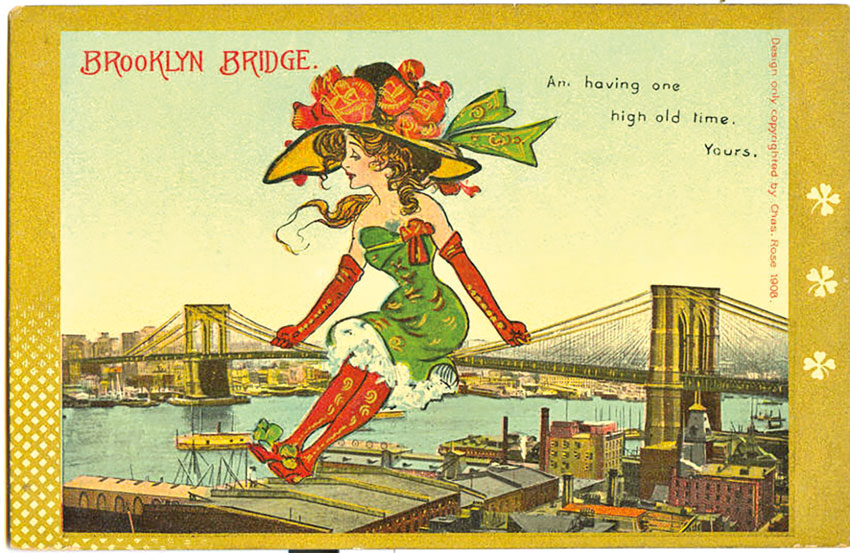
PLEASE NOTE: THIS CONTEST IS NOW CLOSED.
What it is:
Erasure poetry begins with an existing piece of text. Letters, words and punctuation are removed—or erased. What is left behind is a new stand-alone poem, one that both complements and gives new meaning to the Erasure Text.
The Erasure Text for the 3rd Annual Geist Erasure Poetry Contest is “Exhibit 37: Hawthorn Branch,” a prose poem from Cottonopolis by Rachel Lebowitz. Cottonopolis was the moniker given to Manchester, England, a manufacturing and economic hub of the British Empire during the Industrial Revolution.
How it works:
1. Copy the passage from Cottonopolis, posted below, into your word processor. This is your Erasure Text.
2. Erase! The leftover words and letters will form your poem. Do this in any way you like and be creative. The remaining words should take on new shapes and meanings.
3. The ONLY RULE is do not change the order of words or letters. You can combine leftover words and letters however you see fit, just as long as they appear in the same order as in the original text.
4. Shape the text however you like. Or, leave it as is. Add punctuation and capitalization if the spirit moves you.
5. Add a title: it does not have to be from the Erasure Text.
6. Print your entry and send it to us. There is no word limit.
For a great example of an erasure poem, see Readme Doc by Gregory Betts, published in Geist 77.
And for more inspiration, read last year's First Prize winner, "Always the Procreant Urge of the World" by Mark Petrie. Visit our Erasure Poetry page for more of previous winners.
PRIZES:
First Prize: the Geist Erasure Trophy and $600
Second Prize: $250
Third Prize: $150
Honourable Mentions: Swell Geist gifts
All winning entries will be published in Geist and on geist.com. Honourable mentions will be published on geist.com.
More than one prize per category may be awarded.
DEADLINE (extended): September 30, 2013
Entry Fee: $20
Includes a one-year subscription to Geist, Canada's favourite literary magazine. International entrants will receive a digital subscription.
All additional entries are $5.
How to enter:
You can enter online here.
Or, send your poem, with a cover letter (including name, mailing address, phone number, email, title of entry and how you learned about the contest) and the $20 entry fee to:
Geist Erasure Poetry Contest
Suite 210, 111 West Hastings Street
Vancouver, BC V6B 1H4
Entries received without the appropriate information and cover letter will not be accepted. Judging is blind—do not include your name on your entry.
Be sure to sign up for the Geist newsletter to receive important updates and announcements regarding this and other contests.
Good luck and happy erasing!
The Erasure Text: From Cottonopolis by Rachel Lebowitz
[START]
The air's a lot clearer now there's the war in America. Now the mills are closed and the men work in quarries, breaking rock. Robert's one of them. His feet are cut up. And it's soggy out there on the moors. The ground's so damp, the wet climbs up his shins and he comes home, his pants soaked and that cough still there from all the dust in the mills. His body's not ready for such work, it's half killing him, but what can you do? You have to break rock or pick oakum before the Guardians'll grant relief.
It took a long time before we even asked. We waited till we sold most everything we had. Our books, the clock, our Sunday clothes, my bonnet, the children's shoes, the chairs, the bedstead, even my ring. We got used to sleeping on a bag of shavings on the floor. Thing is, you can get used to almost anything. Not that everybody just waits for things to change. Though there are lots like that, and mostly when you line up, it's quiet, people are just tired and quiet. And you get your soup and your Indian meal and maybe a pair of new clogs or a blanket, and you go back home. Or you go – the women I mean – to the sewing classes, and sit there with hundreds of others, darning and knitting on those benches, to get your eight pence. Or you just up and leave, to America or Australia, or to Yorkshire, there's lots now that've gone to Yorkshire. But in Stalybridge and Ashton, they got mad, they rioted. And here it's like that too, you can feel it in the air, that something could go off, any minute. Sometimes you just see it in the eyes.
The shop round the corner's got nothing in it but a couple of empty jars in the window and a mug of buttermilk on the shelf. Mary went there with me and wrote her name out in the dust.
I don't mean to say people don't help. Some do. People from London help, send blankets and penny stamps. And America, the North, I mean, helps some. They sent us boxes and bags of bacon, bread, rice, corn. Thousands of barrels of flour. That was three months ago, in February, and it was bitter cold, most who met the ship had nothing but holey shawls to wrap round themselves, but still they say four thousand stood out there, and cheered so loud, it most shook the grey from the sky. Though others said the money would have been better spent sending us to America. And not everyone's on the Union side. Some got together and wrote to Lincoln and said we still support you and the fight to end slavery. But others say different and there are arguments out on the streets sometimes. I don't much care, to tell truth. I just want it to end.
Today it was sunny at last. After such rain! On Tuesday it just pelted down and the clouds yesterday were black, whipping across the city. And then today, sun. The singers came out. And the family with their instruments – they've got a fiddle and a pennywhistle. These ones were from Blackburn, they had one of their caps out on the ground, and they played some psalms right near the 'Change. Who will rise up for me against the evildoers? Who will stand up for me against the workers of iniquity?
There was still the wind and the cold sun was shining. The breeze mussed the hair on top of the old man's head. His daughter was singing, her voice kind of thin, but pretty. It got too brisk, so I nodded goodbye and made my way to see my aunt. You know, she doesn't have much left, just her table, but on it, someone, I think maybe her son, Joshua, he's twelve, he'd gone up to the moors, to Kersal Moor. And he'd brought back a hawthorn branch in full bloom. There it was on her table. The white blossoms like cotton fluff. All delicate and resting there, in a pint jar full of water.
[STOP]
Excerpt from "Exhibit 37: Hawthorn Branch," pages 91-93 of Cottonopolis, published by Pedlar Press, 2013.





.png)

